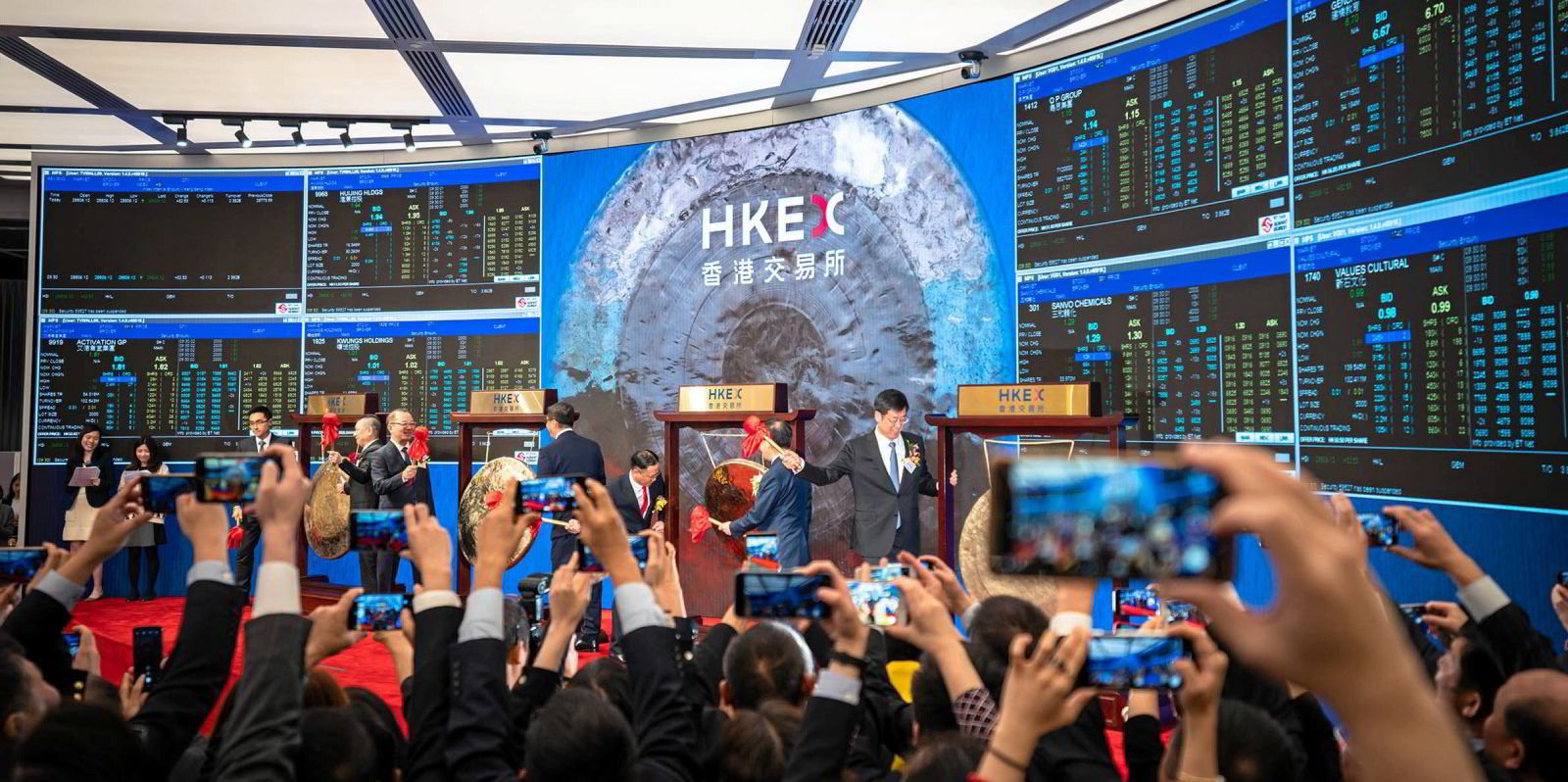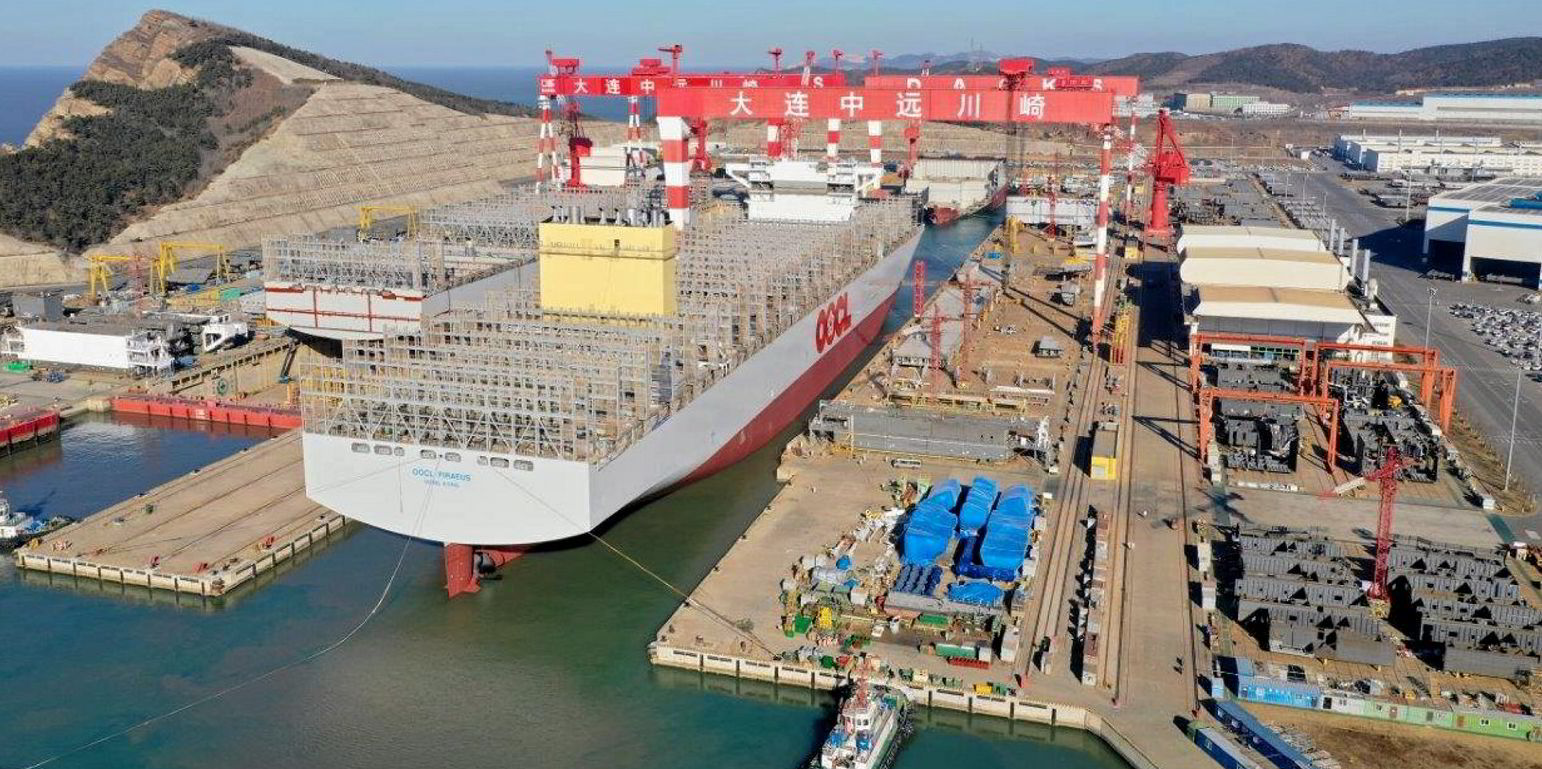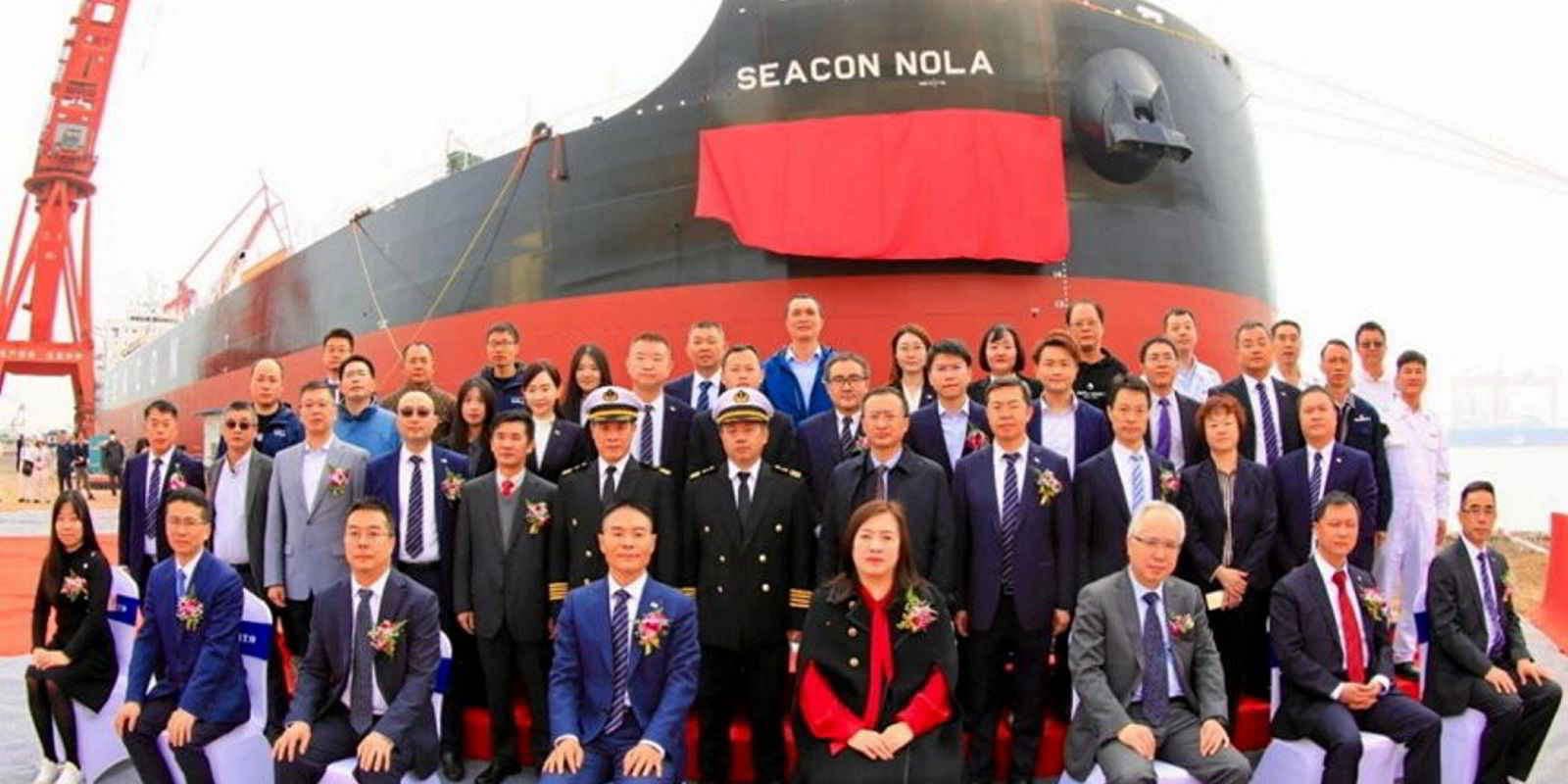Hong Kong-listed shipping companies could be a major beneficiary of a potential tax break by Chinese authorities aimed at reviving investor interest in the former UK colony’s stock exchange.
China is reportedly considering a proposal to exempt Chinese investors from paying dividend taxes, currently 20% on Hong Kong stocks bought via the Stock Connect.
“If it materialises, we see this policy change as a major positive for Hong Kong stocks available on the Stock Connect, especially those offering high dividend yields,” said UOB Kay Hian lead regional logistics and transportation analyst Roy Chen.
“All of our shipping and ports coverage including Cosco Shipping Holdings [CSH], Orient Overseas International [OOIL], Cosco Shipping Ports [CSP] and China Merchants Ports [CMP] are on the Stock Connect and dividend-paying.
“In particular, Hong Kong-listed port operators CSP and CMP offer attractive and sustainable dividends of 5% to 6% even after the recent strong share-price performance and are trading at wide valuation discount versus their mainland China-listed peers,” Chen added.
Chen said the potential removal of this dividend tax is likely to lead to the market’s re-rating of Hong Kong-listed port operators, lowering their valuation discount against their Chinese peers.
The proposal aims to avoid double taxation and align fairer arrangements for investors both in Hong Kong and China, Bloomberg reported last week.
It comes as Hong Kong strives to revive its market after a prolonged downturn in IPOs and trading volumes.
“We maintain market weight on shipping and ports sector, and prefer the ports segment over the container shipping segment,” Chen said.
Shares in CSH and OOIL have surged 31.5% and 26.8%, respectively, in the past three weeks driven by the strong sentiments towards near-term freight rates and earnings outlook, according to the analyst.
“After the sharp share price uprun, we see the risk-reward for the two container shipping stocks getting less attractive,” the analysts told investors.
This is due to a combination of the Red Sea disruptions not being a long-term issue with rates set to normalise once the situation stabilises or shows signs of stabilisation, and that CSH’s and OOIL’s valuations are already higher than other international container shipping peers.
In contrast, despite rising geopolitical tensions, China’s ports sector still achieved a 10% year-on-year growth in the first quarter of 2024, partly helped by the low-base effect a year ago when China’s manufacturing activities were disrupted by the outbreak of Covid-19 cases immediately after the country’s reopening.
“Both CSP and CMP have guided for low single-digit throughput for 2024, which we think could be on the conservative side,” Chen said.
The analyst said CSP remained his top pick for its global leadership, well-diversified investment portfolio with good asset quality and strong backing from its parent company, CSH, which is China’s largest and a globally leading container shipping company with large cargo flows.
“We note that its major shareholder CSH has recently resumed the purchase of CSP shares in the open market,” Chen said.
“Note that CSH’s stake in CSP has increased 17% in the past 20 months to 68% as of 7 May 2024; the increase was mostly due to the CSH’s proactive share purchase in the market.”





